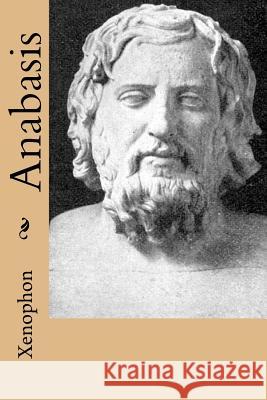Anabasis » książka
Anabasis
ISBN-13: 9781544810867 / Angielski / Miękka / 2017 / 362 str.
Anabasis
ISBN-13: 9781544810867 / Angielski / Miękka / 2017 / 362 str.
(netto: 100,75 VAT: 5%)
Najniższa cena z 30 dni: 99,89 zł
ok. 13-18 dni roboczych.
Darmowa dostawa!
Xenophon the Athenian was born 431 B.C. He was a pupil of Socrates. He marched with the Spartans, and was exiled from Athens. Sparta gave him land and property in Scillus, where he lived for many years before having to move once more, to settle in Corinth. He died in 354 B.C. The Anabasis is his story of the march to Persia to aid Cyrus, who enlisted Greek help to try and take the throne from Artaxerxes, and the ensuing return of the Greeks, in which Xenophon played a leading role. This occurred between 401 B.C. and March 399 B.C. Xenophon was a mercenary, philosopher and military leader of ancient Greece born in Erchia near Athens around -4302, N 1 and died towards -3553. Besides the Anabasis, he wrote a sequel to the History of the War of the Peloponnese of Thucydides entitled The Hellenics. His historical work is impartial, according to Lucien de Samosate, one of the authors that Xenophon inspired. Xenophon prepared minds for the possibility and profits of the conquests of Alexander the Great: in the Anabasis, besides an idealized vision of Asia, he shows that an expeditionary force of elite soldiers can cross the Empire Persian undefeated 5. While he was initially close to the aristocratic ideals, he developed a political thought favorable to the monarchy Henry Graham Dakyns, often H. G. Dakyns (1838-1911), was a British translator of Ancient Greek, best known for his translations of Xenophon: the Cyropaedia and Hellenica, The Economist, Hiero and On Horsemanship. Life Henry Graham Dakyns was born on Saint Vincent in the West Indies, the second son of Thomas Henry Dakyns of Rugby, Warwickshire. His mother Harriet Dasent was the sister of George Webbe Dasent, translator of the Icelandic sagas. He was educated at Rugby School and Trinity College, Cambridge, where he graduated BA in 1860.Dakyns was a tutor for Lord Alfred Tennyson's children, and subsequently House Master and Assistant Master at Clifton College from 1862 to 1889. Though he never played himself, he started the Rugby Football Club at Clifton College. Graham had numerous correspondences with Tennyson and his wife, Henry Sidgwick, John Addington Symonds and T.E. Brown and other nineteenth century literary figures











